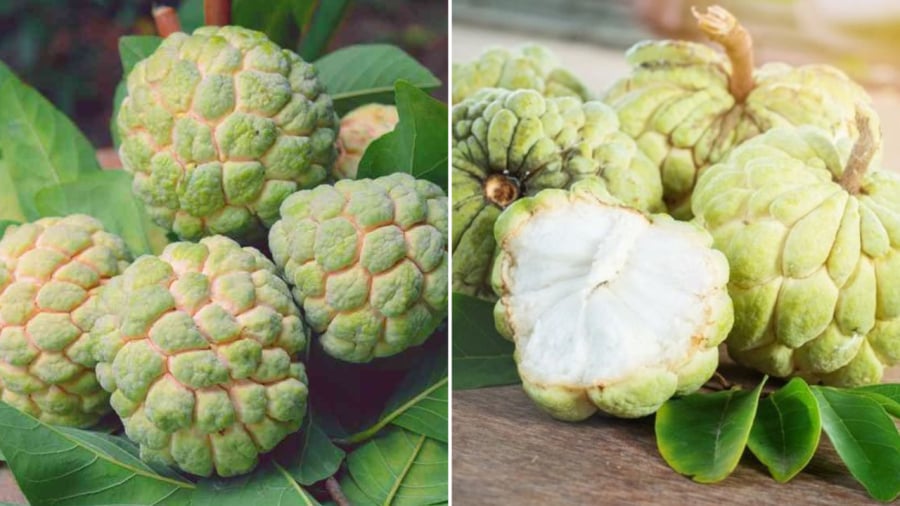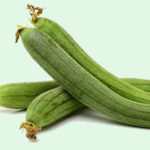The sugar-apple, also known as the sweetsop, is a tropical fruit native to the Americas. It is now cultivated in many parts of Vietnam. The sugar-apple has a delicious flavor and high nutritional value, making it a popular choice among locals.
Health Benefits of Sugar-Apples
– Good for Vision
Sugar-apples are rich in vitamins A and C, both essential for maintaining eye health. They also contain high levels of vitamin B2 and riboflavin, which combat free radicals and prevent vision problems, keeping your eyes bright and healthy.
– Improves Digestion
With its high fiber content, the sugar-apple aids in digestion, preventing issues like indigestion and constipation.
– Energy Booster
Sugar-apples are packed with nutrients that provide energy for daily activities. The abundant potassium in sugar-apples helps prevent muscle weakness and fatigue by improving blood circulation.

Sugar-apples offer a delightful taste and an abundance of nutrients.
– Beneficial for Pregnant Women
Sugar-apples help prevent nausea and numbness, improving the overall mood of expectant mothers. They also provide essential nutrients for the baby’s development, supporting the nervous system, brain, and immune system.
– Promotes Healthy Skin and Teeth
The vitamin A content in sugar-apples helps maintain skin moisture and prevents aging. Additionally, sugar-apples are considered a natural remedy for treating skin problems like pimples and ulcers. The fruit’s peel can also be used to treat tooth decay and gum inflammation.
Who Should Avoid Eating Sugar-Apples?
While sugar-apples offer numerous health benefits and a delightful taste, they may not be suitable for everyone.
– Diabetics
Sugar-apples have a sweet taste and a high sugar content, making them inappropriate for people with diabetes. Pregnant women, especially those with gestational diabetes, should also exercise caution when consuming this fruit.
– Overweight and Obese Individuals
Sugar-apples are high in sugar and energy, making them unsuitable for those trying to lose weight or maintain a healthy weight. Eating one sugar-apple, weighing around 200-250 grams, is equivalent to the energy intake from a bowl of rice. Therefore, excessive consumption may lead to weight gain.

While sugar-apples offer health benefits, they may not be suitable for everyone.
– People with Kidney Disease
Sugar-apples are high in potassium, which can be harmful to individuals with kidney disease. Consuming large amounts of this fruit can further deteriorate kidney function and lead to serious complications.
Precautions when Eating Sugar-Apples
– Beware of Maggots
Sugar-apples, with their sweet taste, can attract insects and maggots, especially during rainy seasons when the fruit is overripe and the skin is cracked. Insects may lay eggs inside the fruit, leading to maggot infestation, which can be harmful to consumers.
– Avoid Biting into the Seeds
Sugar-apple seeds contain high levels of toxins and are used medicinally, but only under controlled dosages. When eating sugar-apples, be cautious not to bite into the seeds, as the toxins can cause poisoning. However, accidentally swallowing a whole seed is not a cause for concern, as the hard outer shell prevents the toxins from taking effect.
– Avoid Excessive Consumption
While sugar-apples are nutritious, excessive consumption may lead to internal heat, acne, prickly heat, and constipation.





































